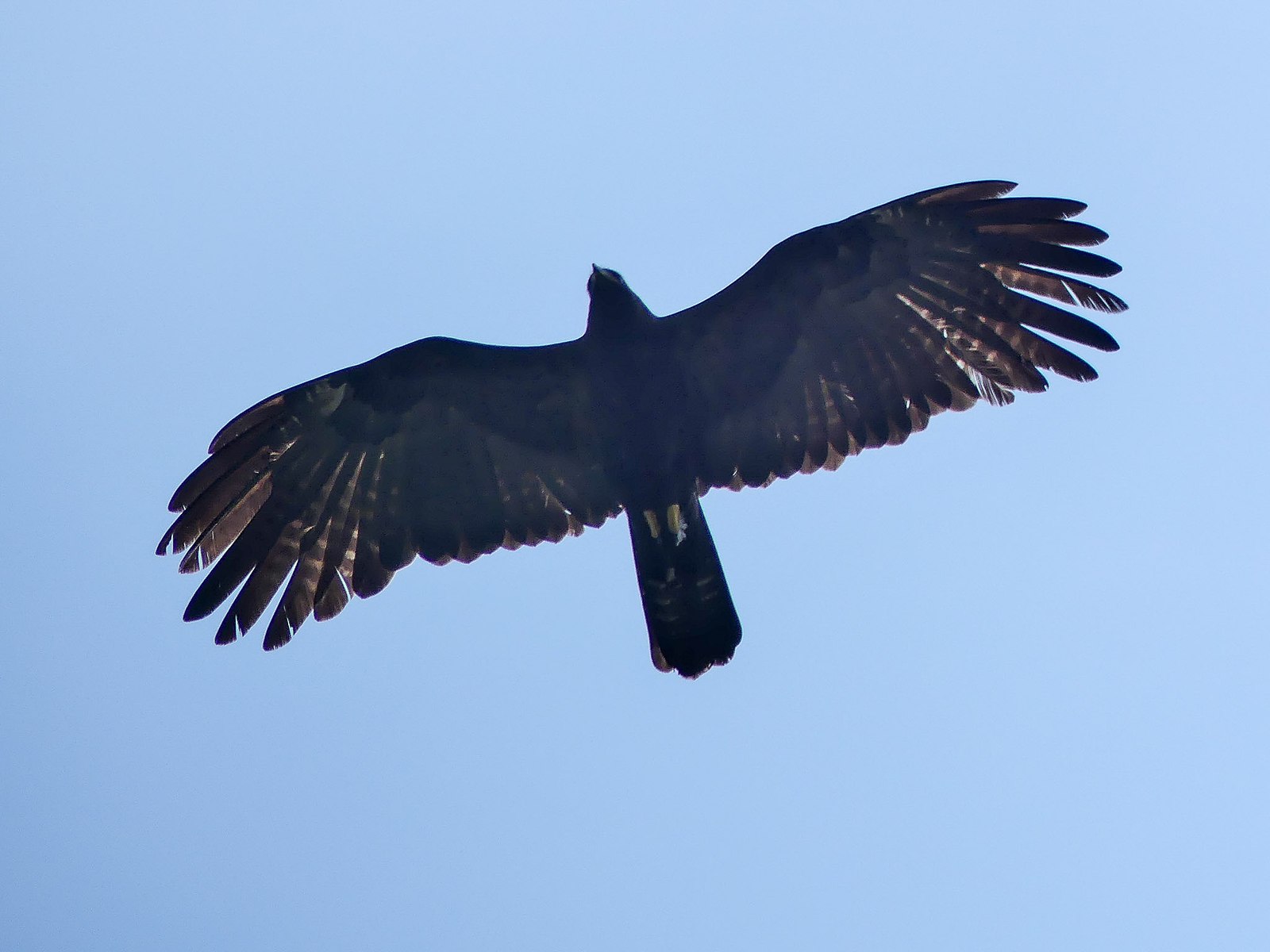Black eagles are known to be carnivorous predators, and they do indeed eat squirrels as part of their diverse diet. These majestic birds of prey are found in various regions across the world, including Africa, Asia, and parts of Europe, and they play a crucial role in maintaining the balance of their ecosystems.
What Do Black Eagles Eat?
Black eagles are apex predators, and their diet consists of a wide range of small to medium-sized animals. In addition to squirrels, they are known to prey on:
- Small mammals, such as bats, monkeys, and small rodents
- Reptiles, including snakes and lizards
- Birds, including other smaller birds and their eggs
- Eggs and nestlings of various bird species
Their powerful talons and sharp beaks allow them to easily capture and consume their prey, making them efficient hunters in their natural habitats.
Hunting Behavior of Black Eagles
 Image source: Black Eagle by Mike Prince
Image source: Black Eagle by Mike Prince
Black eagles are known for their distinctive hunting behavior. They spend a significant amount of time soaring over forested areas, scanning the treetops for potential prey. Their slow, graceful flight just above the canopy allows them to spot and target their prey with precision.
One of the black eagle’s most notable hunting tactics is their ability to raid the nests of other birds. They are known to be prolific nest predators, using their curved claws and wide gape to pluck eggs and nestlings from the nests of other avian species.
Importance of Black Eagles in Ecosystems
As top predators, black eagles play a crucial role in maintaining the balance of their ecosystems. By preying on a variety of small to medium-sized animals, they help to control the populations of these species and prevent them from becoming overpopulated.
Additionally, black eagles are important indicators of the overall health of their habitats. Their presence is often used as a measure of the ecological integrity of a particular region, as they require large, undisturbed forested areas to thrive.
Conservation Efforts for Black Eagles
Despite their importance in their ecosystems, black eagle populations are facing various threats, including habitat loss and degradation due to human activities such as deforestation and urbanization. Additionally, they may be targeted by poachers or suffer from the effects of environmental pollution and climate change.
To address these challenges, conservation efforts have been implemented in various regions where black eagles are found. These efforts often involve:
- Habitat protection and restoration: Ensuring the preservation of large, undisturbed forested areas that are essential for black eagles to thrive.
- Monitoring and research: Conducting regular population surveys and studies to better understand the ecology and behavior of black eagles, which can inform conservation strategies.
- Awareness and education: Educating local communities and the general public about the importance of black eagles and the need for their protection.
- Enforcement of wildlife laws and regulations: Cracking down on illegal hunting, poaching, and other activities that threaten black eagle populations.
By implementing these conservation measures, we can help to ensure the long-term survival of black eagles and maintain the delicate balance of their ecosystems.
Conclusion
In conclusion, black eagles are indeed known to prey on squirrels, as part of their diverse carnivorous diet. These majestic birds of prey play a crucial role in their ecosystems, and their conservation is essential to maintain the overall health and balance of the natural environments they inhabit. Through continued research, habitat protection, and public awareness, we can work to safeguard the future of black eagles and the vital role they play in our world.

